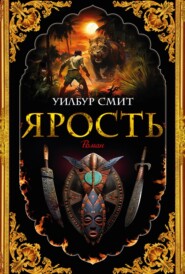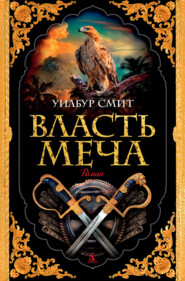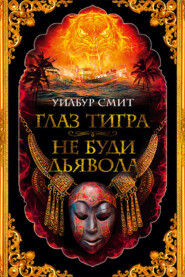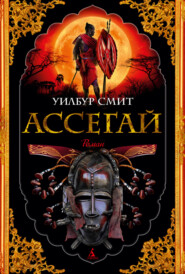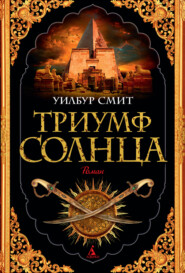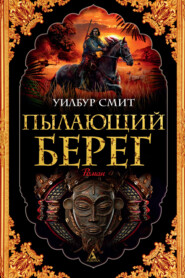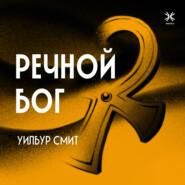По всем вопросам обращайтесь на: info@litportal.ru
(©) 2003-2025.
✖
Pharaoh
Автор
Год написания книги
2019
Настройки чтения
Размер шрифта
Высота строк
Поля
Pharaoh
Wilbur Smith
The Worldwide Number One Bestseller Wilbur Smith returns to Ancient Egypt in a captivating new novel that will transport you to extraordinary times.EGYPT IS UNDER ATTACK.Pharaoh Tamose lies mortally wounded. The ancient city of Luxor is surrounded, All seems lost.Taita prepares for the enemy’s final, fatal push. The ex-slave, now general of Tamose’s armies, is never more ingenious than when all hope is dashed. And this is Egypt’s most desperate hour.With the timely arrival of an old ally, the tide is turned and the Egyptian army feasts upon its retreating foe. But upon his victorious return to Luxor, Taita is seized and branded a traitor. Tamose is dead and a poisonous new era has begun. The new Pharaoh has risen.Pharaoh Utteric is young, weak and cruel, and threatened by Taita’s influence within the palace – especially his friendship with Utteric’s younger and worthier brother, Ramases. With Taita’s imprisonment, Ramases is forced to make a choice: help Taita escape and forsake his brother, or remain silent and condone Utteric’s tyranny. To a good man like Ramases, there is no choice. Taita must be set free, Utteric must be stopped and Egypt must be reclaimed.From the glittering temples of Luxor to the Citadel of Sparta, PHARAOH is an intense and powerful novel magnificently transporting you to a time of threat, blood and glory. Master storyteller, Wilbur Smith, is at the very peak of his powers.
Copyright (#uc5dc77f3-06bb-53e1-b58d-29e213322865)
HarperCollinsPublishers
1 London Bridge Street
London SE1 9GF
www.harpercollins.co.uk (http://www.harpercollins.co.uk)
Published by HarperCollinsPublishers 2016
Copyright © Orion Mintaka (UK) Ltd 2016
Cover design © HarperCollinsPublishers Ltd 2017
Cover photographs: Cityscape © Larry Rostant/Rostant.com (http://Rostant.com); all other images © Shutterstock.com (http://Shutterstock.com)
Map © Nicolette Caven 2016
Wilbur Smith asserts the moral right to be identified as the author of this work
A catalogue record for this book is available from the British Library
This novel is entirely a work of fiction. The names, characters and incidents portrayed in it, while at times based on historical figures, are the work of the author’s imagination.
All rights reserved under International and Pan-American Copyright Conventions. By payment of the required fees, you have been granted the non-exclusive, non-transferable right to access and read the text of this e-book on-screen. No part of this text may be reproduced, transmitted, down-loaded, decompiled, reverse engineered, or stored in or introduced into any information storage and retrieval system, in any form or by any means, whether electronic or mechanical, now known or hereinafter invented, without the express written permission of HarperCollins e-books
Source ISBN: 9780007535842
Ebook Edition © 2016 ISBN: 9780007535835
Version: 2017-04-07
Dedication (#uc5dc77f3-06bb-53e1-b58d-29e213322865)
I dedicate this book Pharaoh to my wife Mokhiniso.
From the very first day I met you, you have been the lodestone of my life. You make every day brighter and every hour more precious.
I am yours forever and I shall love you forever,
Wilbur.
Map (#uc5dc77f3-06bb-53e1-b58d-29e213322865)
Contents
Cover (#ue4a4faea-ffb8-524f-9f31-9a8c443744ec)
Title Page (#u11c14ce6-d718-5881-8e3c-734dc7989a52)
Copyright
Dedication
Map
Pharaoh (#u17d72110-5a4d-5d53-b29b-201ec8134555)
About the Author
Also by Wilbur Smith
About the Publisher
Although I would rather have swallowed my own sword than openly admit it, deep in my heart I knew that finally it was over.
Fifty years ago the Hyksos multitudes had appeared without warning within the borders of our very Egypt out of the eastern wilderness. They were a savage and cruel people with no redeeming features. They had one asset that made them invincible in battle. This was the horse and chariot, which we Egyptians had never seen or heard of previously, and which we looked upon as something vile and abhorrent.
We attempted to meet the Hyksos onslaught on foot but they swept us before them, circling us effortlessly in their chariots, and showering us with their arrows. We had no alternative but to take to our boats and fly before them southward up the mighty Nile River, dragging our craft over the cataracts and into the wilderness. There we lingered for over ten years, pining for our homeland.
Fortuitously I had managed to capture a large number of the enemy horses and spirit them away with us. I soon discovered that the horse, far from being abhorrent, is the most intelligent and tractable of all animals. I developed my own version of the chariot, which was lighter, faster and more manoeuvrable than the Hyksos version. I taught the lad who was later to become Tamose, the Pharaoh of Egypt, to be an expert charioteer.
At the appropriate time we Egyptians swept down the Nile in our fleet of river-boats, landed our chariots on the shores of our very Egypt and fell upon our enemies, driving them into the northern delta. Over the decades that followed we had been locked in the struggle with our Hyksos enemies.
But now the wheel had turned full circle. Pharaoh Tamose was an old man, lying in his tent mortally wound by a Hyksos arrow. The Egyptian army was melting away and tomorrow I would be faced by the inevitable.
Even my intrepid spirit, which had been vital in carrying Egypt forward over the past half-century of struggle, was no longer sufficient. In the last year we had been beaten in two successive great battles, both bitter and bloody but in vain. The Hyksos invaders who had seized the greater part of our fatherland from us were on the threshold of their final triumph. The whole of Egypt was almost within their grasp. Our legions were broken and beaten. No matter how desperately I attempted to rally them and urge them onwards, it seemed that they had resigned themselves to defeat and ignominy. More than half of our horses were down while those still standing were barely able to bear the weight of a man or chariot. As for the men, almost half of them bore fresh and open wounds that they had bound up with rags. Their numbers had been reduced by almost three thousand during those two battles that we had fought and lost since the beginning of the year. Most of the survivors staggered or limped into the fray with a sword in one hand and a crutch in the other.
It is true that this shortfall in our roster was caused more by desertion than by death or wounding in the field. The once proud legions of Pharaoh had finally lost heart, and they fled before the enemy in their multitudes. Tears of shame ran down my cheeks as I pleaded with them and threatened them with flogging, death and dishonour as they streamed past me on their way to the rear. They took no heed of me, would not even glance in my direction as they threw down their weapons and hurried or limped away. The Hyksos multitudes were gathered before the very gates of Luxor. And on the morrow I would lead what would almost certainly be our last feeble chance to avert bloody annihilation.
As night fell over the field of battle I had my manservants clean the fresh bloodstains from my shield and my armour, and beat out the dent in my helmet which earlier in the day had deflected a Hyksos blade. The plume was missing, sheared off by the same enemy blow. Then by the flickering flame of a torch and the reflection in my polished bronzed hand-mirror I contemplated my own image. As always it gave my sorry spirits a lift. Once again I was reminded how readily men will follow an image or a reputation when common sense warned of imminent annihilation. I forced a smile into the mirror, trying to ignore the melancholy shadows in the depths of my eyes; then I stooped out under the flap of my tent and went to pay my respects to my well-beloved Pharaoh.
Pharaoh Tamose lay on his litter attended by three of his surgeons and six of his numerous sons. In a wider circle around him were gathered his generals and high counsellors, and five of his favourite wives. All of them wore solemn expressions and his consorts were weeping, for Pharaoh was dying. Earlier in the day he had received a grievous wound on the field of battle. The shaft of the Hyksos arrow still protruded from between his ribs. None of his physicians present, including even me, the most skilled of them all, had had the temerity to attempt to withdraw the barbed arrowhead from so near to his heart. We had merely snapped off the shaft close to the lip of the wound and now we awaited the inevitable outcome. Before noon on the morrow Pharaoh would almost certainly have vacated the golden throne in favour of Utteric Turo, his eldest son, who was sitting by his side trying not to make it too obvious that he was relishing the moment when the sovereignty of this very Egypt would pass to him. Utteric was a vapid and ineffectual youth who could not even imagine that by the setting of tomorrow’s sun his empire might no longer exist; or rather that was what I believed of him at that time. I was soon to learn how sadly I had erred in judging him.
By now Tamose was an old man. I knew his age almost to the hour, for it was I who had delivered him as an infant into this harsh world. It was popular legend that his first act on arriving had been to piss copiously upon me. I suppressed a smile as I thought how over the ensuing sixty-odd years he had never hesitated to make even his mildest disapproval of me manifest in the same manner.
Now I went to him where he lay and knelt to kiss his hands. Pharaoh appeared even older than his actual years. Although he had recently taken to dyeing his hair and beard, I knew that beneath the bright ginger pigmentation he favoured it was actually white as sun-bleached seaweed. The skin of his face was deeply wrinkled and speckled with dark sun spots. There were bags of puckered skin beneath his eyes: eyes wherein the signs of approaching death were all too obvious.
I have not the faintest idea of my own age. However, I am considerably older than Pharaoh, but in my appearance I seem much less than half his age. This is because I am a long liver and blessed by the gods – most particularly by the goddess Inana. This is the secret name of the goddess Artemis.
Pharaoh looked up at me and he spoke with pain and difficulty, his voice husky and his breathing wheezing and laboured. ‘Tata!’ he greeted me with the pet name he had given me when he was but a child. ‘I knew that you would come. You always know when I need you most. Tell me, my dear old friend, what of the morrow?’
‘Tomorrow belongs to you and Egypt, my Lord King.’ I know not why I chose these words to reply to him, when it was a certainty that all our tomorrows now belonged to Anubis, the god of the cemeteries and the underworld. However, I loved my Pharaoh, and I wanted him to die as peacefully as was possible.
Wilbur Smith
The Worldwide Number One Bestseller Wilbur Smith returns to Ancient Egypt in a captivating new novel that will transport you to extraordinary times.EGYPT IS UNDER ATTACK.Pharaoh Tamose lies mortally wounded. The ancient city of Luxor is surrounded, All seems lost.Taita prepares for the enemy’s final, fatal push. The ex-slave, now general of Tamose’s armies, is never more ingenious than when all hope is dashed. And this is Egypt’s most desperate hour.With the timely arrival of an old ally, the tide is turned and the Egyptian army feasts upon its retreating foe. But upon his victorious return to Luxor, Taita is seized and branded a traitor. Tamose is dead and a poisonous new era has begun. The new Pharaoh has risen.Pharaoh Utteric is young, weak and cruel, and threatened by Taita’s influence within the palace – especially his friendship with Utteric’s younger and worthier brother, Ramases. With Taita’s imprisonment, Ramases is forced to make a choice: help Taita escape and forsake his brother, or remain silent and condone Utteric’s tyranny. To a good man like Ramases, there is no choice. Taita must be set free, Utteric must be stopped and Egypt must be reclaimed.From the glittering temples of Luxor to the Citadel of Sparta, PHARAOH is an intense and powerful novel magnificently transporting you to a time of threat, blood and glory. Master storyteller, Wilbur Smith, is at the very peak of his powers.
Copyright (#uc5dc77f3-06bb-53e1-b58d-29e213322865)
HarperCollinsPublishers
1 London Bridge Street
London SE1 9GF
www.harpercollins.co.uk (http://www.harpercollins.co.uk)
Published by HarperCollinsPublishers 2016
Copyright © Orion Mintaka (UK) Ltd 2016
Cover design © HarperCollinsPublishers Ltd 2017
Cover photographs: Cityscape © Larry Rostant/Rostant.com (http://Rostant.com); all other images © Shutterstock.com (http://Shutterstock.com)
Map © Nicolette Caven 2016
Wilbur Smith asserts the moral right to be identified as the author of this work
A catalogue record for this book is available from the British Library
This novel is entirely a work of fiction. The names, characters and incidents portrayed in it, while at times based on historical figures, are the work of the author’s imagination.
All rights reserved under International and Pan-American Copyright Conventions. By payment of the required fees, you have been granted the non-exclusive, non-transferable right to access and read the text of this e-book on-screen. No part of this text may be reproduced, transmitted, down-loaded, decompiled, reverse engineered, or stored in or introduced into any information storage and retrieval system, in any form or by any means, whether electronic or mechanical, now known or hereinafter invented, without the express written permission of HarperCollins e-books
Source ISBN: 9780007535842
Ebook Edition © 2016 ISBN: 9780007535835
Version: 2017-04-07
Dedication (#uc5dc77f3-06bb-53e1-b58d-29e213322865)
I dedicate this book Pharaoh to my wife Mokhiniso.
From the very first day I met you, you have been the lodestone of my life. You make every day brighter and every hour more precious.
I am yours forever and I shall love you forever,
Wilbur.
Map (#uc5dc77f3-06bb-53e1-b58d-29e213322865)
Contents
Cover (#ue4a4faea-ffb8-524f-9f31-9a8c443744ec)
Title Page (#u11c14ce6-d718-5881-8e3c-734dc7989a52)
Copyright
Dedication
Map
Pharaoh (#u17d72110-5a4d-5d53-b29b-201ec8134555)
About the Author
Also by Wilbur Smith
About the Publisher
Although I would rather have swallowed my own sword than openly admit it, deep in my heart I knew that finally it was over.
Fifty years ago the Hyksos multitudes had appeared without warning within the borders of our very Egypt out of the eastern wilderness. They were a savage and cruel people with no redeeming features. They had one asset that made them invincible in battle. This was the horse and chariot, which we Egyptians had never seen or heard of previously, and which we looked upon as something vile and abhorrent.
We attempted to meet the Hyksos onslaught on foot but they swept us before them, circling us effortlessly in their chariots, and showering us with their arrows. We had no alternative but to take to our boats and fly before them southward up the mighty Nile River, dragging our craft over the cataracts and into the wilderness. There we lingered for over ten years, pining for our homeland.
Fortuitously I had managed to capture a large number of the enemy horses and spirit them away with us. I soon discovered that the horse, far from being abhorrent, is the most intelligent and tractable of all animals. I developed my own version of the chariot, which was lighter, faster and more manoeuvrable than the Hyksos version. I taught the lad who was later to become Tamose, the Pharaoh of Egypt, to be an expert charioteer.
At the appropriate time we Egyptians swept down the Nile in our fleet of river-boats, landed our chariots on the shores of our very Egypt and fell upon our enemies, driving them into the northern delta. Over the decades that followed we had been locked in the struggle with our Hyksos enemies.
But now the wheel had turned full circle. Pharaoh Tamose was an old man, lying in his tent mortally wound by a Hyksos arrow. The Egyptian army was melting away and tomorrow I would be faced by the inevitable.
Even my intrepid spirit, which had been vital in carrying Egypt forward over the past half-century of struggle, was no longer sufficient. In the last year we had been beaten in two successive great battles, both bitter and bloody but in vain. The Hyksos invaders who had seized the greater part of our fatherland from us were on the threshold of their final triumph. The whole of Egypt was almost within their grasp. Our legions were broken and beaten. No matter how desperately I attempted to rally them and urge them onwards, it seemed that they had resigned themselves to defeat and ignominy. More than half of our horses were down while those still standing were barely able to bear the weight of a man or chariot. As for the men, almost half of them bore fresh and open wounds that they had bound up with rags. Their numbers had been reduced by almost three thousand during those two battles that we had fought and lost since the beginning of the year. Most of the survivors staggered or limped into the fray with a sword in one hand and a crutch in the other.
It is true that this shortfall in our roster was caused more by desertion than by death or wounding in the field. The once proud legions of Pharaoh had finally lost heart, and they fled before the enemy in their multitudes. Tears of shame ran down my cheeks as I pleaded with them and threatened them with flogging, death and dishonour as they streamed past me on their way to the rear. They took no heed of me, would not even glance in my direction as they threw down their weapons and hurried or limped away. The Hyksos multitudes were gathered before the very gates of Luxor. And on the morrow I would lead what would almost certainly be our last feeble chance to avert bloody annihilation.
As night fell over the field of battle I had my manservants clean the fresh bloodstains from my shield and my armour, and beat out the dent in my helmet which earlier in the day had deflected a Hyksos blade. The plume was missing, sheared off by the same enemy blow. Then by the flickering flame of a torch and the reflection in my polished bronzed hand-mirror I contemplated my own image. As always it gave my sorry spirits a lift. Once again I was reminded how readily men will follow an image or a reputation when common sense warned of imminent annihilation. I forced a smile into the mirror, trying to ignore the melancholy shadows in the depths of my eyes; then I stooped out under the flap of my tent and went to pay my respects to my well-beloved Pharaoh.
Pharaoh Tamose lay on his litter attended by three of his surgeons and six of his numerous sons. In a wider circle around him were gathered his generals and high counsellors, and five of his favourite wives. All of them wore solemn expressions and his consorts were weeping, for Pharaoh was dying. Earlier in the day he had received a grievous wound on the field of battle. The shaft of the Hyksos arrow still protruded from between his ribs. None of his physicians present, including even me, the most skilled of them all, had had the temerity to attempt to withdraw the barbed arrowhead from so near to his heart. We had merely snapped off the shaft close to the lip of the wound and now we awaited the inevitable outcome. Before noon on the morrow Pharaoh would almost certainly have vacated the golden throne in favour of Utteric Turo, his eldest son, who was sitting by his side trying not to make it too obvious that he was relishing the moment when the sovereignty of this very Egypt would pass to him. Utteric was a vapid and ineffectual youth who could not even imagine that by the setting of tomorrow’s sun his empire might no longer exist; or rather that was what I believed of him at that time. I was soon to learn how sadly I had erred in judging him.
By now Tamose was an old man. I knew his age almost to the hour, for it was I who had delivered him as an infant into this harsh world. It was popular legend that his first act on arriving had been to piss copiously upon me. I suppressed a smile as I thought how over the ensuing sixty-odd years he had never hesitated to make even his mildest disapproval of me manifest in the same manner.
Now I went to him where he lay and knelt to kiss his hands. Pharaoh appeared even older than his actual years. Although he had recently taken to dyeing his hair and beard, I knew that beneath the bright ginger pigmentation he favoured it was actually white as sun-bleached seaweed. The skin of his face was deeply wrinkled and speckled with dark sun spots. There were bags of puckered skin beneath his eyes: eyes wherein the signs of approaching death were all too obvious.
I have not the faintest idea of my own age. However, I am considerably older than Pharaoh, but in my appearance I seem much less than half his age. This is because I am a long liver and blessed by the gods – most particularly by the goddess Inana. This is the secret name of the goddess Artemis.
Pharaoh looked up at me and he spoke with pain and difficulty, his voice husky and his breathing wheezing and laboured. ‘Tata!’ he greeted me with the pet name he had given me when he was but a child. ‘I knew that you would come. You always know when I need you most. Tell me, my dear old friend, what of the morrow?’
‘Tomorrow belongs to you and Egypt, my Lord King.’ I know not why I chose these words to reply to him, when it was a certainty that all our tomorrows now belonged to Anubis, the god of the cemeteries and the underworld. However, I loved my Pharaoh, and I wanted him to die as peacefully as was possible.






